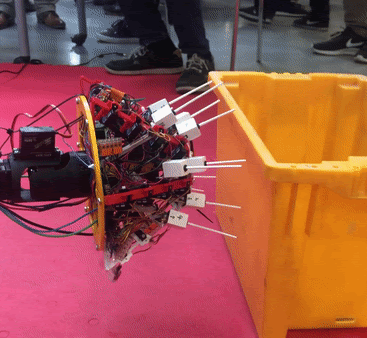Author: David Blanco Mulero
Robot Learning
Programming robots to perform various tasks often requires extensive domain knowledge and a tedious programming process. The size of the program rapidly grows with task complexity; explicitly programming a robot to perform challenging tasks in a variety of environments would require the programmer to write routines for an enormous number of situations that may possibly […]
Bio-inspired Robotics
Biological systems may serve as an inspiration for robots. Nature can provide inspiration to the designs of physical components such as sensors and actuators, as well as computational processes such as perception or decision making. What we do Tactile sensing inspired by both morphology and operation of rat whiskers; Study of human navigation behavior to […]
Manipulation and Grasping
Robotic grasping has been studied for more than 30 years as it is an essential skill for both industrial and service robots. Most grasp generation methods rely on known objects and a static environment with no clutter, assumptions which are not applicable in more dynamic environments such as homes. In these environments robots need to […]
Human-Robot Interaction
Service and collaborative robots are becoming more common in dynamic human-inhabited environments. Robots have potentially a wide range of capabilities, making them the perfect candidates for the role of general assistive devices. To be fully effective, robots must adapt to their end users’ needs. Users, however, may lack the technical skills to properly instruct robots […]



